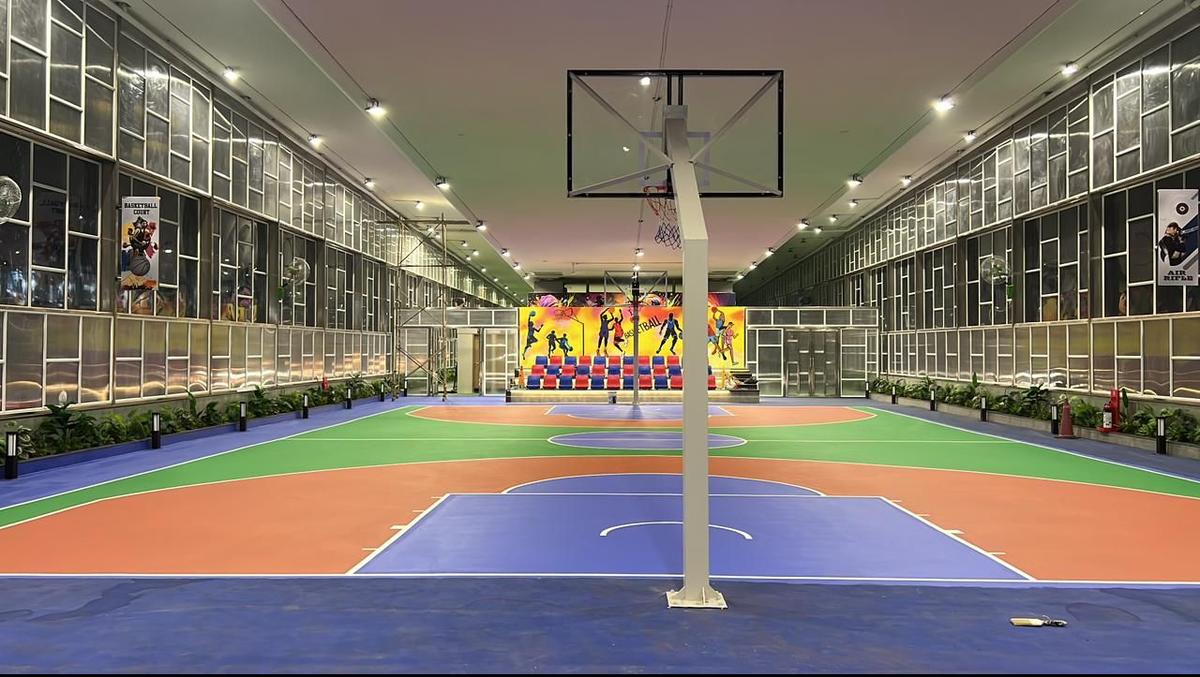Khelo India Beach Games puts marginal sports in the spotlight — a review
Khelo India Beach Games in Diu elevated lesser-known sports, showcasing untapped talent and shifting perceptions of beach sports as professional avenues in India.
Published : Jun 05, 2025 15:16 IST , Diu – 5 MINS READ
Manipur, a landlocked state, emerged victorious at the inaugural Khelo India Beach Games (KIBG), held on the Blue Flag-certified sands of Ghoghla Beach in Diu. Despite participating in only two disciplines, Manipur topped the table with five gold, six silver, and three bronze medals — four of the gold medals coming in the Pencak Silat event.
The KIBG featured six medal events: beach soccer, beach volleyball, Sepak Takraw, Pencak Silat, open water swimming, and beach kabaddi. Mallakhamb and tug of war were included as demonstration sports. A last-minute addition saw a boxing ring replace the Mallakhamb poles to showcase the local boxing talent.
This wasn’t the first time Diu hosted beach games. Last year’s edition, held in January, was an independent initiative by the Union Territory (UT) of Dadra and Nagar Haveli and Daman and Diu (DNH & DD), with Madhya Pradesh — another landlocked state — winning. This year’s Games were under the Khelo India banner, featuring 1,300 athletes from 31 states and union territories, up from 1,200 participants last year.
(L-R) Sinam Jeevan Singh, Sinam Chingkhei Singh, Yaikhom Rohit Meitei from Manipur posing with their medals in Pencak silat during the Khelo India Beach Games 2025. Despite participating in only two disciplines, Manipur topped the table with five gold, six silver, and three bronze medals — four of the gold medals coming in Silat. | Photo Credit: SHASHI SHEKHAR KASHYAP
Sports Minister Mansukh Mandaviya hinted during the opening ceremony that Diu could become a permanent venue for the Beach Games. The move reflects the UT’s growing ambition in promoting beach sports and boosting sports tourism.
Challenges and quick adjustments
It was only in March that the UT was told that it would host the KIBG. So, the Games came together in a short time. Arun Gupta, Director and Joint Secretary, Sports and Youth Affairs, DNH & DD, said, “Organising this edition wasn’t a big challenge for us because we had the experience of doing something similar last year. However, the timing was touch-and-go. The month of May is very hot, and there was a prediction of high tide after May 25. So we had to wrap up the Games before that.”
A lasting impact was visible in Mallakhamb. The sport’s inclusion in last year’s Games led to a permanent set-up at a school in Khanvel. | Photo Credit: SHASHI SHEKHAR KASHYAP
Last year’s edition was limited to Under-21 athletes. This year’s KIBG was open to all, received national media coverage, and helped reshape perceptions of beach sports in a region where they’re traditionally seen as leisure activities. Gupta noted, “Holding these Beach Games showed children they can play these sports professionally.”
A lasting impact was visible in Mallakhamb. The sport’s inclusion in last year’s Games led to a permanent set-up at a school in Khanvel. Gupta shared how children are increasingly asking about beach sports and how to enroll. He expressed hope that hosting the Games regularly would give the UT’s tourism a national appeal.
Investments and barriers
The UT has invested nearly Rs 300 crore in sports infrastructure over the last 5–7 years, funded from its budget. Arun T, Sports Secretary of DNH & DD, highlighted some of the major projects: a cricket stadium in Sayli undergoing modifications, a football ground in Daman, and two Olympic-sized swimming pools in Diu. A Khelo India State Centre of Excellence in Silvassa focuses on table tennis, archery, and athletics, with infrastructure for the latter two under development at an estimated Rs 70 crore.
In Silvassa, the department creatively repurposed the space beneath a flyover into a sports arena with facilities for chess, ludo, carrom, basketball, air rifle shooting, and judo. Gupta added, “One initiative the UT government took to bridge the urban-rural gap in sports is that we distributed standard kits of volleyball, football, and cricket to selected athletes from each ward and panchayat.” A report from the Department of Youth Affairs & Sports, DNH & DD, states that 35,000 such kits were distributed.
However, challenges persist. “Changing the mindset is a task,” Gupta said. “People here see sports as entertainment or something to do alongside other work. They don’t yet view it professionally.” Local sports federations also face difficulties in gaining recognition from their respective national bodies. Gupta cited cricket as a prime example. “Many local associations, like cricket, aren’t recognised by national federations. If someone wants to play cricket, they can’t represent the UT and must play for Gujarat. That’s a loss because Gujarat would favour its athletes. We’re trying to work with these federations to gain recognition.”

In Silvassa, the department creatively repurposed the space beneath a flyover into a sports arena with facilities for chess, ludo, carrom, basketball, air rifle shooting, and judo. | Photo Credit: Special Arrangement
A platform for athlete voices
The Games provided a platform for athletes from lesser-known sports to raise issues. Punjab tug of war men’s team head coach, Mandeep Singh, said, “There is no gradation for tug of war in Punjab. Unlike sports like kabaddi or cricket, ours isn’t recognised. Recognition would help us create more players who can represent India internationally.”
Kerala tug of war women’s team captain, Nima MT, spoke about the lack of funds for athletes. Pencak Silat’s Princess Thomas, a world championship bronze medallist, said more state-level funding and national advertising are needed to improve the sport. Manipur’s Sinam Chingkhei Singh, a double gold medallist at KIBG, called for cash prizes and government jobs for athletes. Chaoba Devi, an Asian Games bronze medallist in Sepak Takraw, urged the creation of an academy to nurture talent.
Boxer Suman Vijay Pahal, although not from the UT, asked for scholarships like those offered in Haryana. Beach soccer players, including Rohith Yesudas and Satish Naik, suggested launching a professional league akin to the ISL. Female players like Jasoda Munda and Naaz Shaikh participated in South Asia’s first women’s beach soccer tournament and expressed hope for more such initiatives to grow the women’s game.
Arriving just before the closing ceremony, Raksha Khadse, Minister of State for Youth Affairs and Sports, said the government is learning from events like the KIBG. “We talk about the Olympics; events like this will give athletes a platform to perform and also help us gauge what we need to improve as a sporting nation.”
SPORTSTAR

